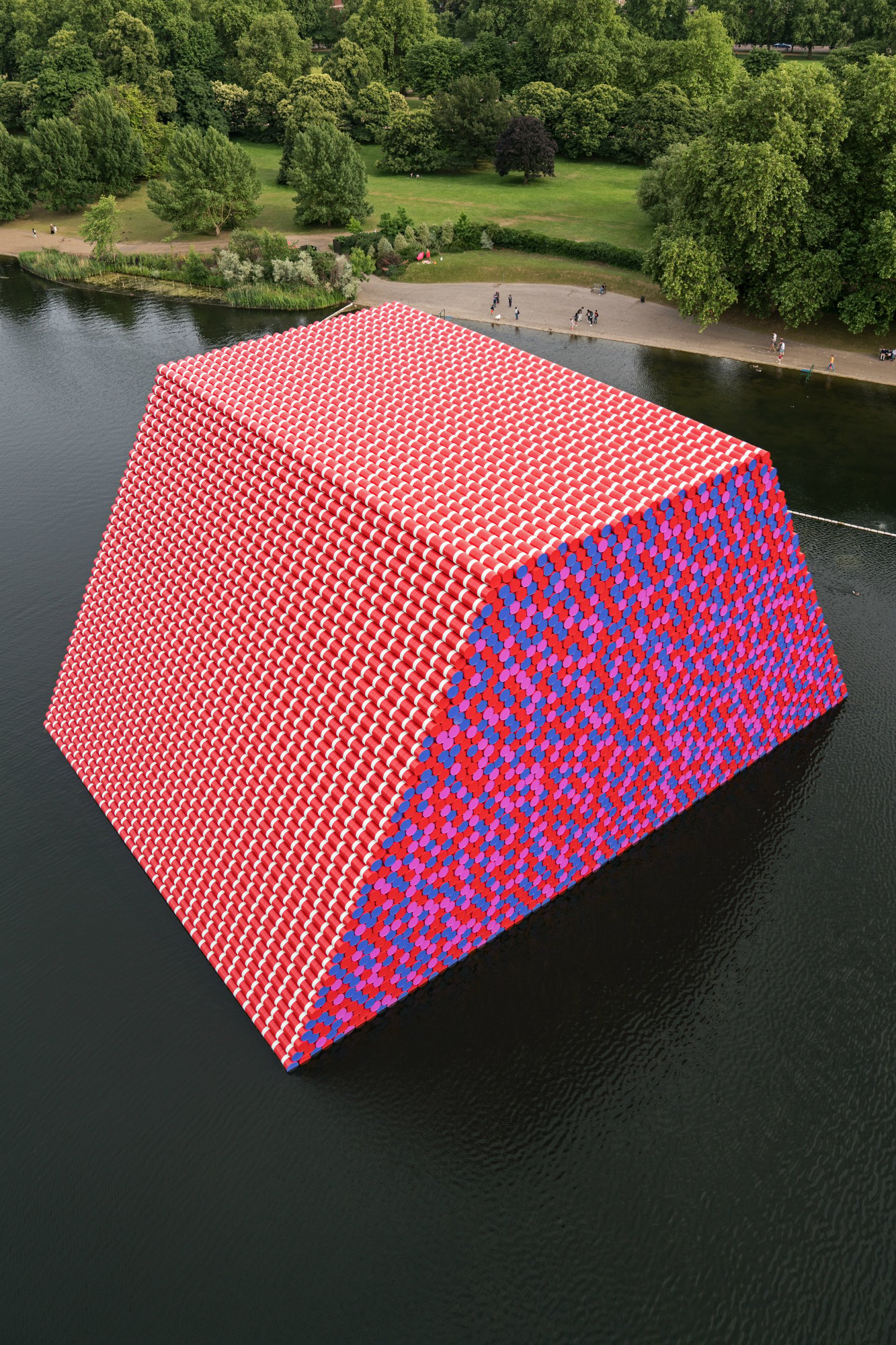
Christo and the late Jeanne Claude’s monumental floating sculpture, The London Mastaba, is a gift that will keep on giving, apparently. After the pyramid-like work of art—made of more than 7,500 oil barrels—comes down, the artist is funding a range of ecological improvements to Serpentine Lake where it is installed. In addition to creating new habitats for wildlife, Christo will undertake a deep cleaning operation to improve the lake’s quality.
As part of the project, the Serpentine’s herons will get baskets and waterfowl refuges, and there will be Christo-funded boxes for the bats living beside the water in London’s Hyde Park, a spokeswoman for the Royal Parks told artnet News. Other improvements include clearing litter and “large debris” from the bed of the lake. The effort will also tackle the Serpentine Island, which has become overgrown.
Christo is also funding the removal of excess phosphate from the water, the spokeswoman said. The process will reduce the growth of potentially harmful algae. That will likely come as welcome news to members of the Serpentine Swimming Club who swim in the lake year-round and to fair-weather bathers using the Serpentine Lido.
“An important part of the London Mastaba is the temporary nature, it has a nomadic quality,” Christo says. “But after the sculpture is removed and the materials are recycled, the original viewers can still see and feel it in their minds when they return to Hyde Park.” Vladimir Yavachev, who is the director of operations for the project, says: “Maintaining the Serpentine and the surroundings continues to be a top priority.” Yavachev adds: “We will leave the lake even better than it was before.”
Like Christo and Jean-Claude’s other monumental projects, The London Mastaba is entirely self-funded from the sale of original works of art. (It cost an estimated $4 million, according to the New York Times.) Construction began in April; it was unveiled in June and is due to dismantled by November 1. Royal Park backed the ambitious sculpture—and its location—partly because it would have no adverse impact on the wildlife of the Serpentine or Hyde Park.
But not everyone was a fan of the idea. One objector listed on the planning application said that “the construction, display, and dismantling of the structure will be harmful to the feeling of serenity and calm of the park.” The objector argued that the Mastaba is an Ancient Egyptian burial mound and “has no relevance to the Serpentine.”
The artist Clare Burnett, however, welcomes the news that Christo is funding a cleanup. As a member of the Serpentine Swimming Club, Burnett takes regular dips in the lake, which has allowed her to admire the sculpture from up close. “The high points have been the changing light on it and seeing the divers go down to check everything,” she says. “I feel as if I’m in a car chase with a pile of oil cans about to be tipped over and chase me across the lake.”
“Christo and Jeanne-Claude: The London Mastaba,” 18 June through September 23, Serpentine, Hyde Park, London.